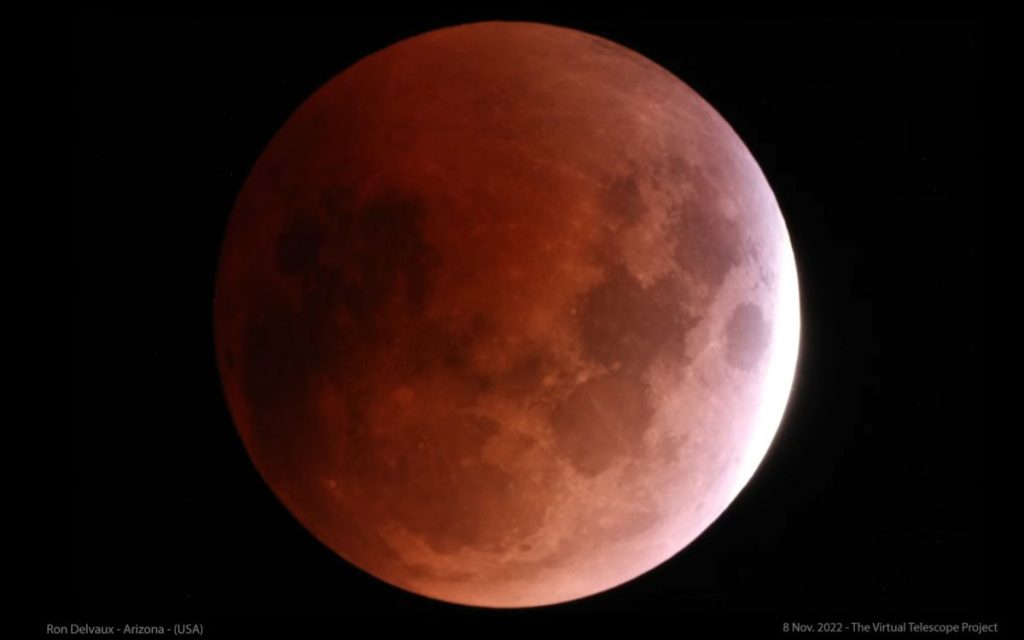The last Blood Moon lunar eclipse until 2025 is underway!
The Beaver Blood Moon lunar eclipse started at 3:02 a.m. EST (0802 GMT), totality began at 5:16 a.m. EST (1016 GMT) and the lunar eclipse will end at 8:56 a.m. EST (1356 GMT).
The total lunar eclipse happens when the full moon in this case November’s full Beaver Moon) moves into the deep umbral shadow of the Earth and receives only light first filtered by Earth’s atmosphere, it will be visible from North America and parts of South America, Asia, Australia and New Zealand. You can watch the total lunar eclipse on Space.com, courtesy of several webcasts from observatories across the United States.
Related: Lunar eclipses 2022: When, where & how to see them
The lunar eclipse is not visible to everyone but thanks to various livestreams around the world, everyone can get a chance to view the Blood Moon lunar eclipse for free.
The mobile observatory team of the website Time and Date is livestreaming the lunar eclipse on its YouTube channel (opens in new tab). Time and Date also have a live blog (opens in new tab) featuring real-time reports and background information about the total lunar eclipse. Astrophysicist Gianluca Masi of the Virtual Telescope Project 2.0 is livestreaming the eclipse from Ceccano, Italy, on the project’s website (opens in new tab). The Lowell Observatory in Flagstaff, Arizona is also offering a free livestream of the lunar eclipse on their YouTube channel (opens in new tab). Finally, the famed Griffith Observatory (opens in new tab) in Los Angeles, California will offer its own livestream of the lunar eclipse on their YouTube channel.
Skywatchers have taken to Twitter to share their excitement about the lunar eclipse along with some impressive photographs and videos.
Pretty cool #BloodMoon over #StatenIsland pic.twitter.com/nP9xUXc3d1November 8, 2022
Ohhh.. full lunar eclipse here in Tokyo.. was wondering what ppl looking up at during train ride pic.twitter.com/GInpE2GV18November 8, 2022
Total lunar eclipse to start the day in central Indiana. Very thin cloud layer made focusing an issue. #LunarEclipse @StephanieMeadWX @ChuckWTHR pic.twitter.com/nSX4nUlebeNovember 8, 2022
If you want to photograph the moon or want to prepare your gear for the total lunar eclipse, check out our best cameras for astrophotography and best lenses for astrophotography. Read our guides on how to photograph a lunar eclipse, as well as how to photograph the moon with a camera for some helpful tips to plan out your lunar photo session.
Editor’s Note: If you snap an amazing lunar eclipse photo and would like to share it with Space.com’s readers, send your photo(s), comments, and your name and location to spacephotos@space.com.

